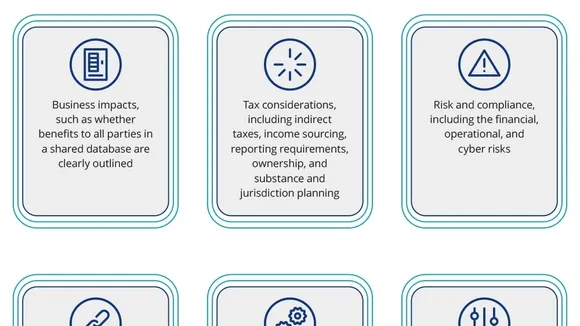Amidst the rapidly evolving digital landscape, Walters Kluwer steps forward with a groundbreaking solution, CCH Validate, leveraging blockchain technology to transform traditional audit processes. This innovation aims at enhancing the accuracy and reliability of bank balance verifications, a crucial step in auditing that has long been vulnerable to fraud due to its reliance on paper-based statements. Walters Kluwer’s patented process signifies a monumental shift towards secure and tamper-proof auditing methods.
The Need for Blockchain in Auditing
In the realm of auditing, the verification of bank balances stands as a critical hurdle. Traditionally, auditors have grappled with the challenges posed by easily manipulable paper-based statements and PDFs. However, with the introduction of blockchain technology, Walters Kluwer’s CCH Validate paves the way for a new era where auditors can cryptographically verify bank data directly from the source. This not only drastically reduces the risk of fraud but also instills a greater level of confidence in the integrity of financial statements.
Extending Blockchain Beyond Auditing
While CCH Validate showcases the potential of blockchain in auditing, the technology’s applicability extends far beyond, particularly into the realm of stablecoins and tokenization projects. Here, the principle remains the same: ensuring the authenticity and untampered state of asset custodianship through blockchain. Ondo Finance, a public blockchain firm, exemplifies this approach by tokenizing Treasuries among other assets. Despite its efforts to foster transparency through daily self-attestation reports, the absence of direct custodian attestations leaves a gap in establishing unwavering trust among accountants and investors alike. The adoption of blockchain for custodian attestations on a regular basis could very well bridge this gap, offering the market the confidence it sorely needs.
Implications and Future Prospects
As Walters Kluwer leads the charge with CCH Validate, the potential for blockchain to redefine the landscape of financial verification and auditing becomes increasingly evident. This pioneering approach not only promises to mitigate the risks associated with traditional audit processes but also heralds a new standard for transparency and security across various financial domains. The future may well see blockchain becoming an indispensable tool in the arsenal against financial fraud, ushering in an era of trust and reliability in financial reporting and beyond.
Reflecting on the broader implications, the integration of blockchain technology in auditing and asset management underscores a pivotal transformation. This transition, spearheaded by innovators like Walters Kluwer and Ondo Finance, signals a move towards a more secure, transparent, and efficient financial ecosystem. As this technology continues to evolve and gain acceptance, the prospects of a fully trustworthy and tamper-proof financial system seem not just plausible but inevitable.

